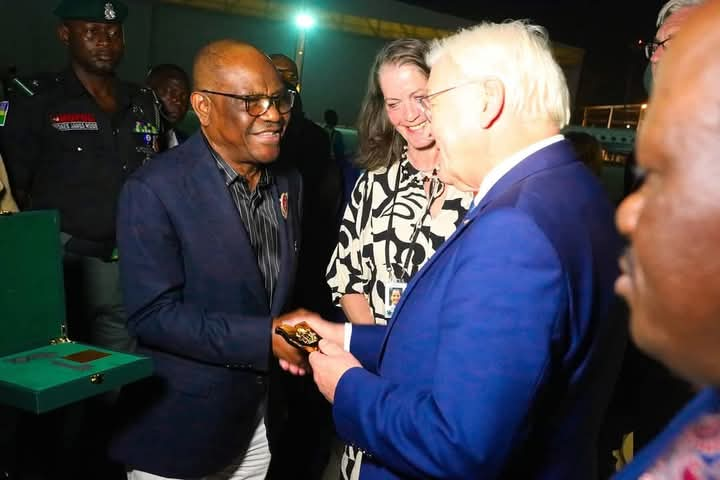German President Praises Nigeria’s Economic Reforms
During an official visit to Nigeria, German President Frank-Walter Steinmeier lauded the country’s ongoing economic reforms. He emphasized the potential for strengthened bilateral relations between Germany and Nigeria. This visit marks a significant moment in diplomatic ties, especially as Nigeria navigates one of its most challenging economic periods in decades.
Support for Economic Initiatives
In a meeting at the State House in Abuja with Nigerian President Bola Tinubu, Steinmeier expressed Germany’s support for Nigeria’s reform initiatives. He praised Tinubu’s leadership and the resilience of the Nigerian people in facing economic challenges. “It takes courage and perseverance to navigate through economic crises; we have seen this in Germany,” Steinmeier remarked.
Investment Opportunities
The German President highlighted that the reforms in Nigeria are viewed positively by the German business community. These changes improve investment conditions, making Nigeria an attractive destination for foreign capital. “We are following your bold steps and will stand by you,” he assured Tinubu, reinforcing Germany’s commitment to supporting Nigeria’s economic trajectory.
Nigeria’s Commitment to Business
President Tinubu articulated his administration’s dedication to creating a conducive environment for international business. He outlined various reforms aimed at streamlining bureaucratic processes and improving tax policies. “Our doors are wide open to business,” he declared, inviting German investors to explore opportunities in Africa’s largest economy.
Facing Economic Challenges
Nigeria faces severe economic challenges, including soaring inflation rates and fuel shortages. Despite this, Tinubu remains optimistic about the future. The government has embarked on ambitious fiscal reforms designed to stabilize the economy and promote sustainable growth. These measures include ending costly fuel subsidies and implementing a unified exchange rate system.
Collaboration on Renewable Energy
Steinmeier acknowledged these efforts as crucial for attracting investments and fostering stability. The discussions also included collaborative efforts in renewable energy sectors. Both leaders expressed interest in green hydrogen projects as part of their commitment to sustainable development. “Germany has the technology for green hydrogen; we see great potential in collaborating with Nigeria,” Steinmeier noted.
A Strong Bilateral Relationship
The relationship between Germany and Nigeria has historically been strong, rooted in mutual interests across various sectors such as energy, agriculture, and technology. In recent years, this partnership has evolved further as both nations seek to address pressing global challenges like climate change and economic diversification.
Business Delegation Accompanies the President
As part of this visit, Steinmeier was accompanied by a delegation of prominent German business leaders eager to explore investment opportunities in Nigeria. Their presence underscores a growing recognition of Nigeria’s potential as a key player in Africa’s economic landscape. The Nigerian government is keen on leveraging this interest to boost its economy and create jobs for its burgeoning population.
A Vision for Growth
The commitment to strengthening ties was clear throughout the discussions. Both leaders emphasized the importance of collaboration not just at governmental levels but also among businesses and civil societies. “We must deepen our connections on all fronts,” Tinubu stated, highlighting shared goals of prosperity and development.
A Pivotal Moment
In conclusion, President Steinmeier’s commendation of Nigeria’s economic reforms marks a pivotal moment in the two countries’ relationship. It reflects a shared vision for growth amid challenging circumstances. As both nations move forward with their partnership, there is hope that these reforms will yield positive outcomes for Nigeria’s economy while enhancing Germany’s role as a key ally in Africa.


